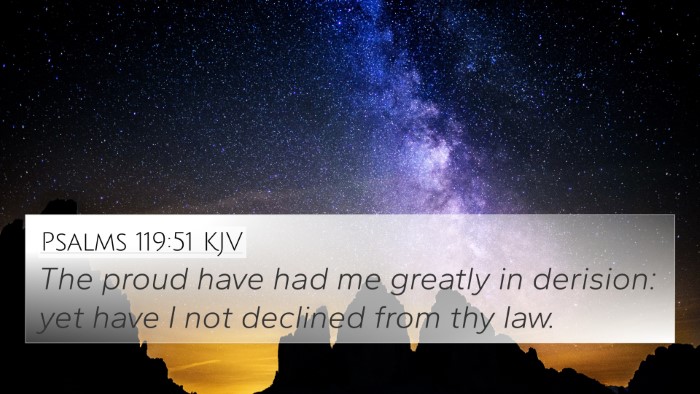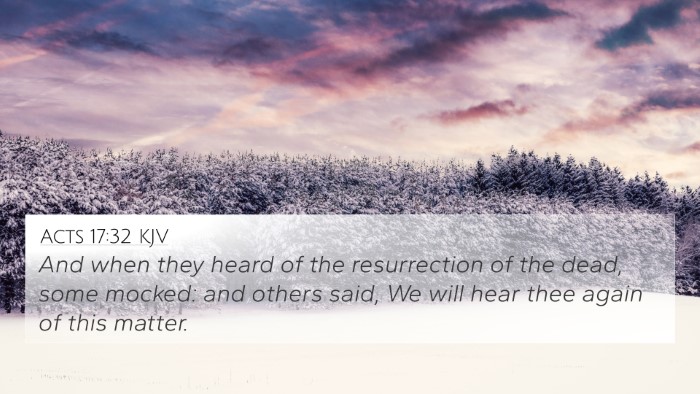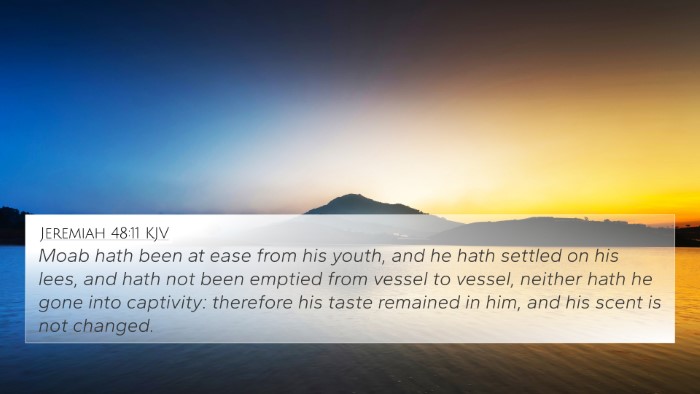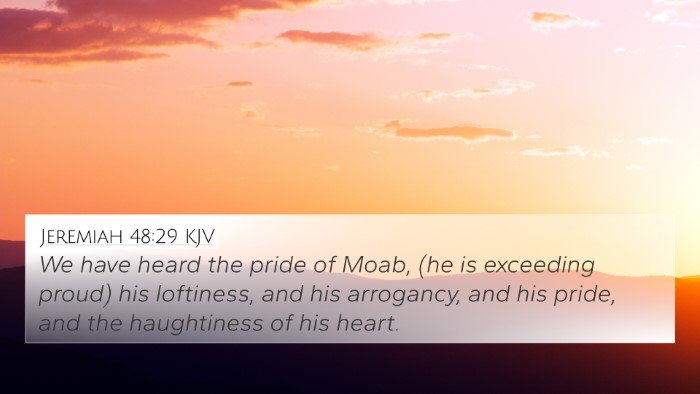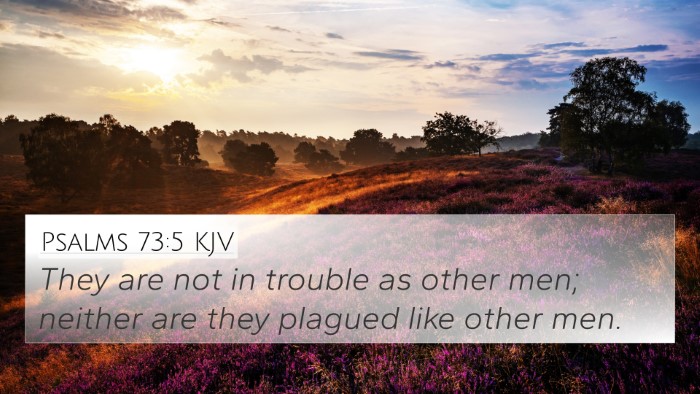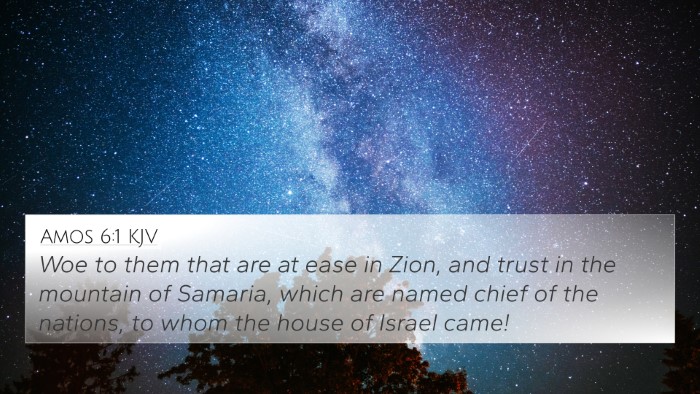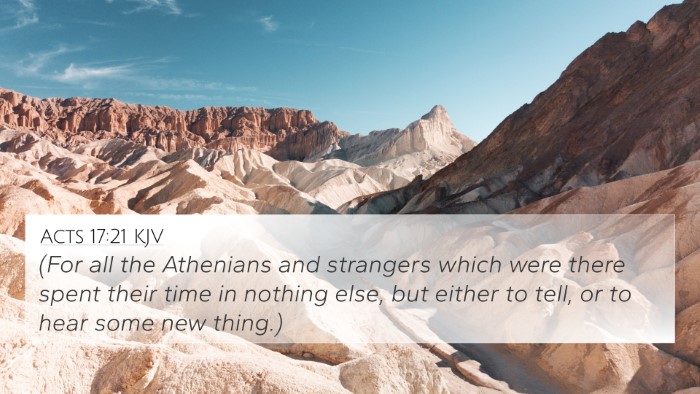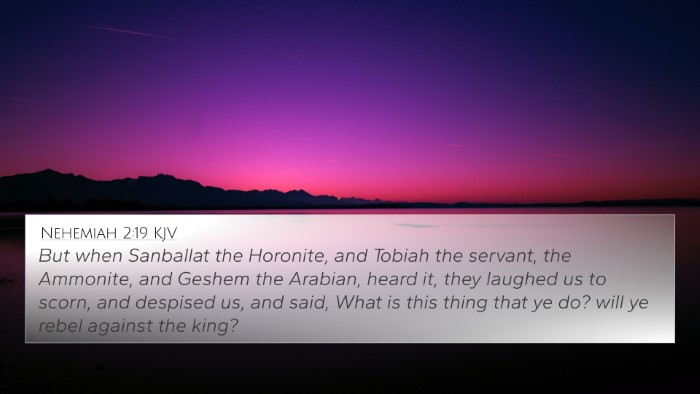Psalms 123:4 - Understanding the Verse
Psalms 123:4 states, "Our soul is exceedingly filled with the scorn of those who are at ease, with the contempt of the proud." In this verse, the psalmist expresses a profound sense of distress and longing for divine mercy amidst the scorn and contempt faced from those who oppose them.
Verse Meaning and Summary
This psalm is a part of a group known as the Songs of Ascents, sung by pilgrims traveling to Jerusalem. The overarching theme revolves around the psalmist's deep dependence on God for help and comfort in times of tribulation. Here, the expression of being 'exceedingly filled' with scorn highlights a feeling of being overwhelmed, contrasting the ease and pride of the oppressors.
Commentary Insights
Matthew Henry
Matthew Henry notes that the psalmist laments the scorn directed towards them from those who appear 'at ease.' This indicates that within the context of suffering, the proud often belittle the struggles of the humble. Henry emphasizes the importance of looking towards God for relief rather than being consumed by the relentless contempt from others.
Albert Barnes
Albert Barnes highlights the emotional toll that scorn can take on the soul. He interprets the 'scorn of those who are at ease' as a reference to oppressors who enjoy a comfortable life while mocking the plight of the faithful. Barnes points to the need for patience and expectation for God’s ultimate justice and deliverance.
Adam Clarke
Adam Clarke discusses the psychological impact of contempt on the believers. He notes that while the proud may scoff, it is crucial for the faithful to remain steadfast in their reliance on God, signifying that divine providence will prevail against all ridicule. Clarke also draws attention to the communal aspect of the lament, indicating a shared experience of suffering among the faithful.
Cross-References and Thematic Connections
The anguish expressed in Psalms 123:4 can be linked to several other scriptural passages, demonstrating thematic continuity throughout the Bible. Below are the notable cross-references:
- Psalms 79:5 - A cry for help amidst the scorn and mockery of nations.
- Psalms 31:18 - A plea for God to silence those who speak lies and derision.
- Matthew 5:11-12 - Jesus teaches that ridicule and persecution for righteousness should be met with joy, as it is a witness to one's faith.
- James 4:10 - Humbling oneself before God in the face of pride and contempt from others.
- Psalms 22:6-8 - Foretelling the scorn faced by the righteous and God’s ultimate vindication.
- Isaiah 51:7 - A reminder to the faithful not to fear the reproach of men.
- Proverbs 3:34 - God’s disdain for the proud and grace for the humble.
- Psalms 123:1-2 - The immediate verses before this, reinforcing the dependency on God's mercy.
- 1 Peter 4:14 - Encouragement for believers experiencing reproach for the name of Christ.
- Romans 8:31 - Affirmation that if God is for us, who can be against us, providing a foundational comfort amid scorn.
Inter-Biblical Dialogue
Psalms 123:4 fosters an inter-biblical dialogue, demonstrating how the themes of oppression and divine justice resonate across both the Old and New Testaments. While the psalmist articulates feelings of contempt, many New Testament passages offer assurance and encouragement to believers experiencing similar trials.
Understanding these connections through tools for Bible cross-referencing can enrich one's study of scripture. The use of a Bible concordance or the Bible cross-reference guide can help identify similar themes and passage connections.
Conclusion
In conclusion, Psalms 123:4 serves as a poignant reminder of the challenges faced by the faithful in the midst of scorn and derision. The insights from various commentaries illuminate the necessity of reliance on God's grace. The cross-references establish a network of support found throughout the Scriptures, reinforcing the hope in God’s ultimate justice.



